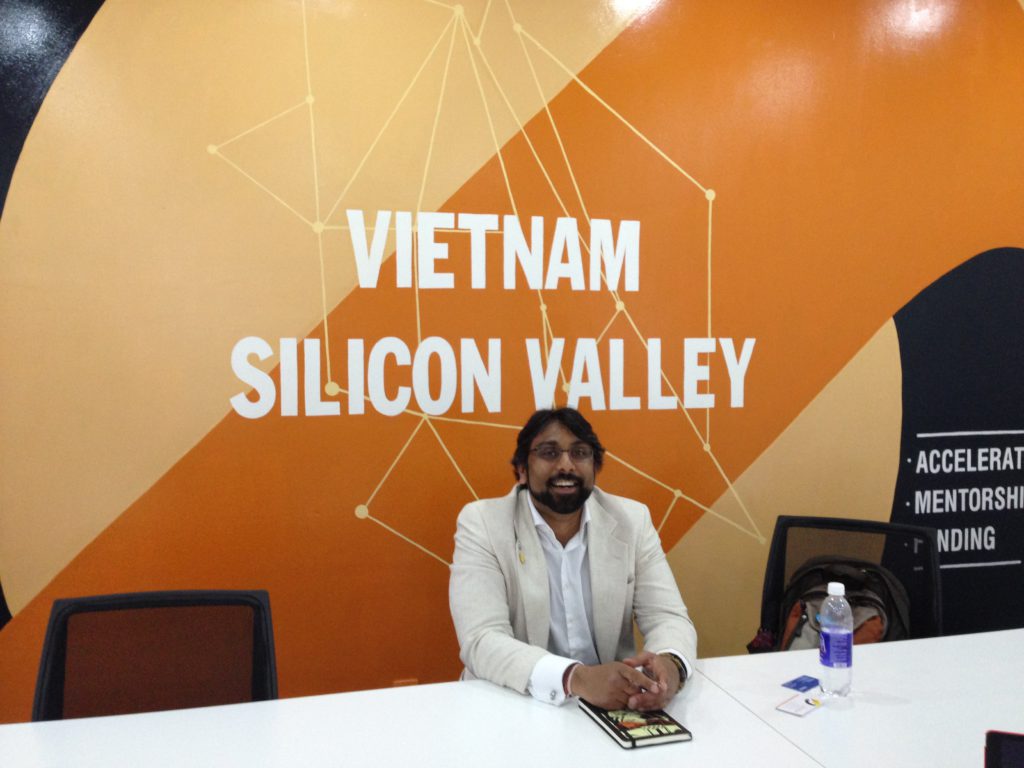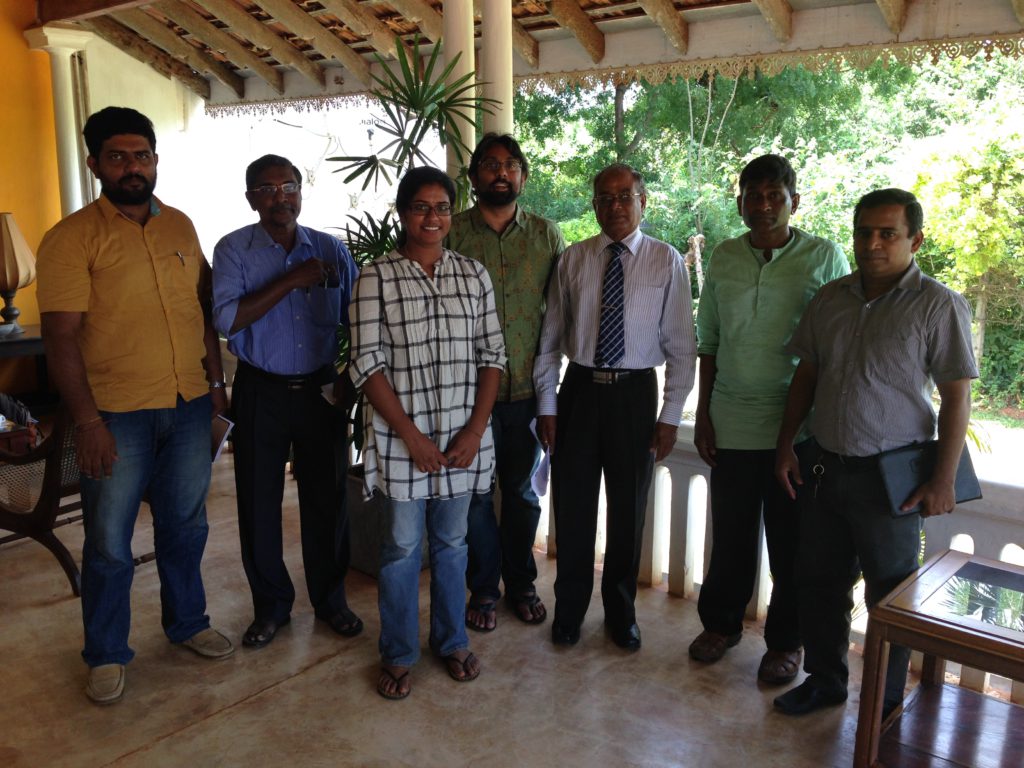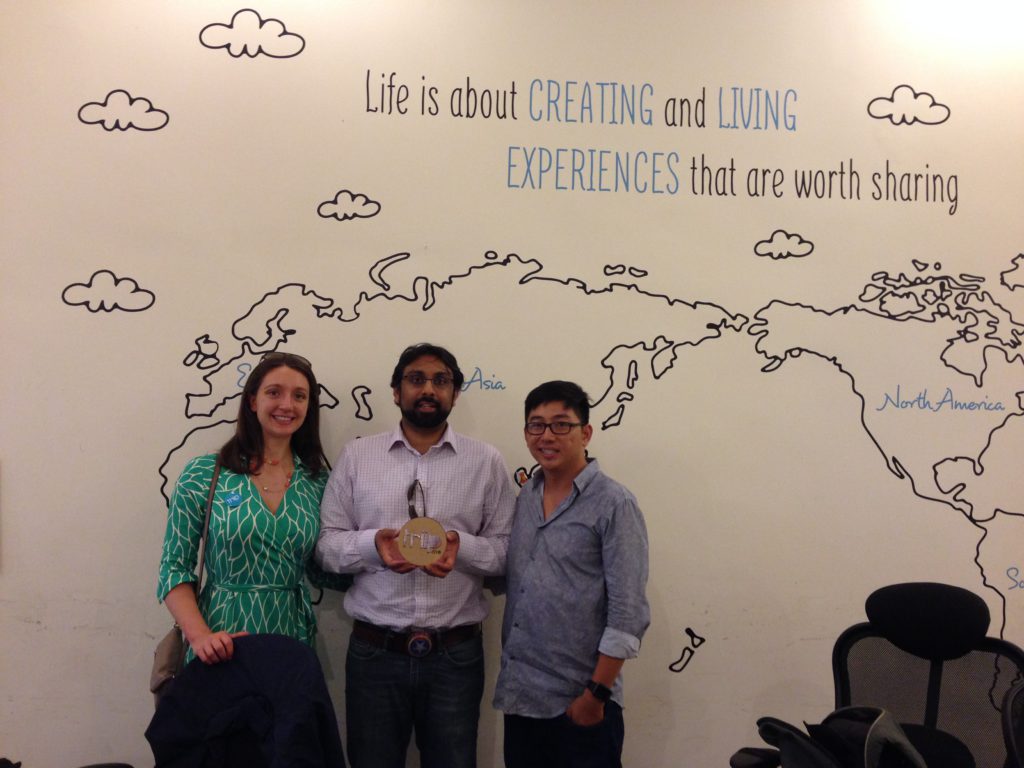The Eisenhower USA Fellowship takes US professionals across the globe to enhance their intercultural and leadership skills. Established in 1989, the program gives recipients a customized four-to-five-week itinerary, where they have the opportunity to meet with leaders in their fields, gain a global perspective, and network using the fellowship platform. Fellows also gather in Philadelphia before and after their trip to network and participate in workshops designed to advance their individual projects. Each year, about 20 accomplished mid-career professionals with US citizenship or permanent residency have the chance to go abroad with an Eisenhower fellowship. Applicants come from all professional fields, including the private, public, and nonprofit sector.
To learn more about this unique fellowship opportunity, we spoke with Nagesh Rao, a 2016 Eisenhower Fellowship alumnus. Nagesh is a Chief Technologist & Entrepreneur in Residence with the US Small Business Administration’s Office of Investment & Innovation in Washington, DC.
1. What inspired you to apply for the Eisenhower USA Fellowship?
The Eisenhower Fellowship is a unique program that seeks mid-career leaders from the US and abroad to engage in a cross-cultural leadership development program. The program is designed to facilitate dialogue and encourage a means of collaborative engagement amongst fellows in hopes of helping cultivate endeavors that help make the world prosperous, peaceful, and just.
I first learned about Eisenhower Fellowships when my colleague Dr. David Bray was selected in 2015, and he recommended my name to a few fellows visiting from overseas to meet with me regarding government policy innovation around applied science and small business. Over the course of time, I started to learn more about the fellowship from various meetings I had with Fellows from the US and abroad. My interest piqued further as I saw the types of projects the fellows were pursuing from sustainable agriculture development to the Internet of Things in a globally connected world to women’s rights and economic empowerment. The projects the fellows were pursuing were cutting edge and driven on a thirst for knowledge and execution; it was infectious–how could I not be a part of it all?
Before you know it, I was nominated by David Bray, Nathan Sivagananathan (Sri Lanka 2016), and Aditya Wardhana (Indonesia 2016) to throw my hat in the ring, based on the work that I do to help incentivize and support high growth-focused innovation ecosystems via my job at the US Small Business Administration (SBA). The work I have done over the years and programmatic endeavors I have had the privilege to help create, such as helping startups thrive, tackling intellectual property law policy, and spurring technology research and development were blossoming towards a nexus point of engagement. I saw the Eisenhower Fellowship opportunity as one that could help me move the needle forward through the organization’s phenomenal network of individuals as well it’s impressive standing in the global affairs realm of engagement.
My fellowship project was to investigate opportunities to build and scale pathways for SBIR/STTR firms to move towards global development and deployment. Furthermore, to identify key partnering organizations and communities that could be tied back to our US-based innovation ecosystem communities cultivated through our SBIR and Growth Accelerator programs. My itinerary was designed around identifying and connecting with key leaders (private, public, and not for profit) in Vietnam and Sri Lanka whom I could talk with to determine the validity and need of my thesis. To learn more about my endeavors with Eisenhower Fellowships you can visit the Fellows Directory.
2. What are the benefits of the fellowship?
The fellowship is a family of change agents dedicated to helping make the world a better place. It provides a platform, and a means for convening thought leaders and doers dedicated to their professions. The fellows who are part of this network are phenomenal and are rising leaders in their respective fields of interest. We have fellows who are heads of state, corporations, and universities who are facilitating change for a better world.
During my fellowship in the summer of 2016, I was afforded the opportunity to visit Vietnam and Sri Lanka, where I met with impressive people and learned about organizations and initiatives (private, public, and non-profit) seeking to transform each country’s economy and social welfare for the betterment of all. I was able to talk about my work on the Small Business Innovation Research program and on growth accelerators, and share the success we have had with both endeavors strengthening the innovation ecosystems in the US. At the same time, I was able to solicit new ideas and see how emerging economies like those in Sri Lanka and Vietnam were reinventing themselves to not only be competitive but also sources of new opportunities of engagement for the world.
The positive impact this fellowship has had on my career has been life-changing, as it brought further legitimacy to the work and efforts of me and my colleagues, and our efforts to stimulate and help grow technological innovation through the power of small business. The SBIR program I work on, also known as America’s Seed Fund, is an annual 2.5 Billion dollar non-dilutive innovation fund from the US government to help spur next-generation applied science research and development. This program has given birth to iconic companies such as Qualcomm, Symantec, Biogen-IDEC, Made in Space, Illumina, Intuitive Surgical, and many more. To have the ability to elevate the good work our SBIR team does across the US and inspire other countries to replicate versions of their own using the Eisenhower Fellowship platform has been crucial.
3. What tips would you give others applying to the Eisenhower USA Fellowship?
The application process is arduous, so take the time to be complete, thorough, but to the point in your written application. Should you get the opportunity to make it to the next round and interview in-person, all I can say is be yourself–that is the most important tip I can provide. Convey a compelling story and clarify why you want to be part of the Eisenhower Fellowship network and what you can contribute to the community as a whole. The fellowship program is looking for engaging applicants with a track record of being dynamic, diverse doers. Fellows in the program don’t just talk the talk but feverishly walk the walk.
They told me my application stood out because of my track record, thoughtfulness, and persistence to get things done. I also think it was because I was myself. I did not try to hide the fact that I was a Star Wars geek, or try to bloviate on my credentials. I told them whether I was selected or not, it was an honor to be considered (which it truly was), and that my door was always open to help any of the fellows in the network (which has always been the case).
Nagesh Rao was a 2016 USA Eisenhower Fellow. He serves as Chief Technologist & Entrepreneur in Residence with the US Small Business Administration’s Office of Investment & Innovation. His portfolio of work includes the SBIR/STTR program and coordination of the Fueling Small Business Innovation Interagency Policy Committee for the White House’s Lab-to-Market Commercialization Agenda. Nagesh also handles all things “techie” and “nerd-related.”
© Victoria Johnson 2017, all rights reserved.


